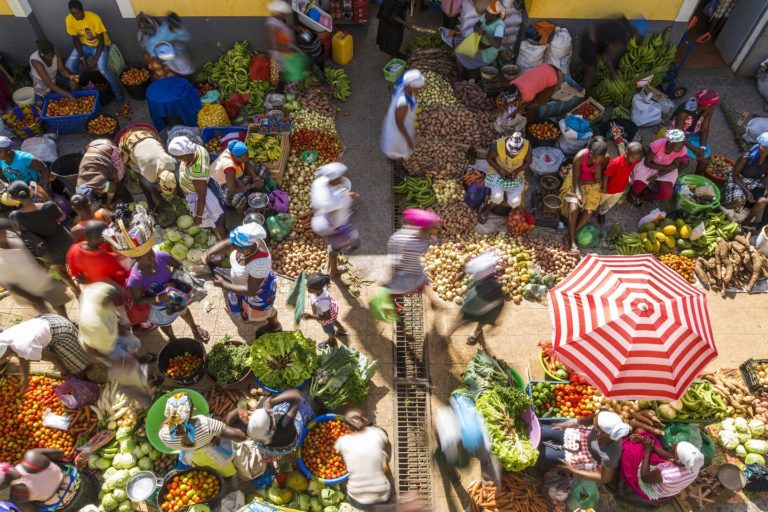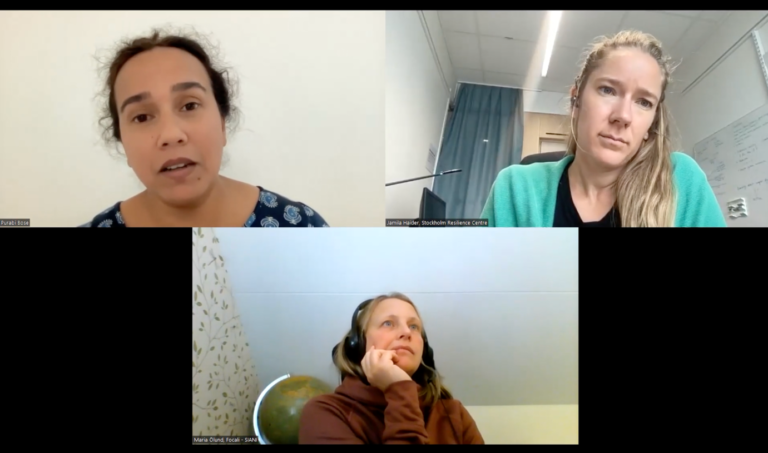Written by Matthew Kessler, project coordinator at TABLE, a collaboration between University of Oxford, SLU, and Wageningen University that explores the evidence and values behind global food systems debates.

Food is at the center of many of the intersecting challenges we face today. Nearly one in 10 people in the world are undernourished, climate change throws more instability into the already difficult job of farming, and global biodiversity is rapidly declining – so much so that some are calling this period the sixth mass extinction. These challenges are especially acute in low- and middle-income countries, which was the focus of the Agri4D 2023 conference that was I fortunate enough to co-moderate in September.
The incredibly timely theme of this year’s conference was “building resilient food systems in uncertain times.” While I won’t be able to summarize all that I learned, in this blog I’ll share two key insights I gained from this year’s conference: elevating unheard voices in food systems, and the importance of seeing each solution in the appropriate context.
Complex food systems
How do you run a conference on such a complicated topic like food systems? You’d have to explore the complex and interconnected webs that connect seeds and inputs to farms, farms which produce food that is regionally or internationally distributed across global supply chains, food that is then sold, or processed and sold, and purchased in markets, retailers, restaurants, and ultimately end up on people’s plates.
This movement of food from seed to plate does not only present logistical challenges, but also political, cultural, social and economic dilemmas. In order to facilitate an inclusive conversation about the future of food, you’d have to take the approach that Agri4D did, and engage with farmers, businesses, economists, trade experts, politicians at regional and national levels, civil society and researchers. I was impressed with the commitment and care that each brought to improving food systems and making them more resilient, although they didn’t always agree on a solution.
Context matters
It’s a rare opportunity to be presented with a myriad of solutions and efforts to enact food systems transformation across the world. In this short period of time, it’s easier to notice the striking differences across countries and contexts. Some regions face challenges of malnutrition, the impacts of climate change, gender inequality, political instability, or a combination of these factors.
As keynote speaker Professor Appolonaire Djikeng pointed out, resilient to what? What is the exact vulnerability that we need to confront and how can we be proactive in our approach to building resilience. How can scientists, policymakers and practitioners work together to get ahead of our challenges and not only react to them. While we are connected by global challenges, and can share what we learn with each other, we must also recognize that solutions aren’t always easily translatable to other contexts.
I want to highlight one more accomplishment of this conference that really stood out to me, which was its ability to elevate unheard or marginalized voices in the food system.
 Screenshot of panel recording from “Panel 12 – Indigenous knowledge production and rights in food system”
Screenshot of panel recording from “Panel 12 – Indigenous knowledge production and rights in food system”
Elevating unheard voices
One of the most profound outcomes of the conference was its commitment to giving a platform to voices that are seldom heard in discussions about food systems. Those who are most vulnerable are typically being “spoken to” rather than “discussed with.” We heard a compelling keynote by Seema Kulkarni that spoke to the lived realities of the wives of Indian farmers who had taken their own lives. We learned about the immense challenges they face in continuing to run these farms while navigating economic hardships and societal pressures, and the community they found in supporting each other. Their stories were a strong reminder that the human element should never be lost in our discussions about food systems.
In addition to these personal narratives, the conference organized a panel discussion on indigenous knowledge production across Asia and Africa. These panellists shared the importance of preserving food cultures – cultivating, preparing, and sharing communal meals – to provide diverse and healthy diets to malnourished populations. Incorporating indigenous knowledge into our strategies for building resilience is an important tool to tackle some of the specific challenges that these communities face.
Conclusion
Building resilience across food systems is not a task for a single stakeholder. Nor is it strictly an ecological principle, where a resilient ecosystem can be defined as one that is better able to withstand and absorb ongoing shocks to the system. Resilience is also a social principle, where a village of people from different backgrounds, trainings and worldviews, work together to increase the resilience of local and global food systems.
We need to follow in the footprints of this conference – to bridge the gaps between science, policy, and practice, and bring a diverse array of professionals to the table. To be open about what solutions work, which don’t, and what remains uncertain. To be clear-headed about what the vulnerabilities are that we are trying to address. To apply the right interventions, whether they are trainings to build knowledge and skills, the use of appropriate seeds and technologies, or smart policy interventions and business innovations. Ultimately, we need to work together if we wish to apply and build a resilient, sustainable, and just food system in the future.
